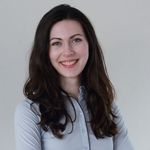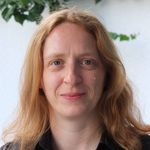The spectral theory of Riemannian manifolds is an important area of mathematics with strong influence on many other fields of mathematics (e.g., representation theory, number theory, harmonic analysis, and mathematical physics). During the last few years, great interest arose in spectral theory of noncompact spaces (in particular of so-called open systems) as well as in a spectral theory for Riemannian locally symmetric spaces with non-unitary twists.
In this project we will study the spectral properties of noncompact Riemannian locally symmetric spaces with twists of non-expanding cusp monodromy. This class of twists reaches far beyond the set of representations that are unitary at cusps, and it constitutes a frontier until which we might currently expect a twisted spectral theory. Our investigations will focus on hyperbolic spaces (thus, Riemannian locally symmetric spaces of noncompact type and of rank 1) but we will also carry out first steps towards an extension of the expected results to locally symmetric spaces of higher rank as well as to non locally symmetric spaces with hyperbolic ends. We will investigate how the geometry and dynamics at the various types of ends govern the properties of the resonances, proper eigenvalues, eigenfunctions, etc. of these spaces. Further we will study the asymptotic properties of these (sets of) spectral objects. In order words, we will understand here the leitmotiv "geometry at infinity" in two ways.
Publications
In the framework of infinite ergodic theory, we derive equidistribution results for suitable weighted sequences of cusp points of Hecke triangle groups encoded by group elements of constant word length with respect to a set of natural generators. This is a generalization of the corresponding results for the modular group, for which we rely on advanced results from infinite ergodic theory and transfer operator techniques developed for AFN-maps.
Related project(s):
70Spectral theory with non-unitary twists
We provide Fourier expansions of vector-valued eigenfunctions of the hyperbolic Laplacian that are twist-periodic in a horocycle direction. The twist may be given by any endomorphism of a finite-dimensional vector space; no assumptions on invertibility or unitarity are made. Examples of such eigenfunctions include vector-valued twisted automorphic forms of Fuchsian groups. We further provide a detailed description of the Fourier coefficients and explicitly identify each of their constituents, which intimately depend on the eigenvalues of the twisting endomorphism and the size of its Jordan blocks. In addition, we determine the growth properties of the Fourier coefficients.
| Journal | Commun. Number Theory Phys. |
| Volume | 17, no. 1 |
| Pages | 173-248 |
| Link to preprint version | |
| Link to published version |
Related project(s):
70Spectral theory with non-unitary twists
We study the spectral properties of the Laplace operator associated to a hyperbolic surface in the presence of a unitary representation of the fundamental group. Following the approach by Guillopé and Zworski, we establish a factorization formula for the twisted scattering determinant and describe the behavior of the scattering matrix in a neighborhood of \(1/2\).
Related project(s):
70Spectral theory with non-unitary twists
We present the Laplace operator associated to a hyperbolic surface \(\Gamma\backslash\mathbb{H}\) and a unitary representation of the fundamental group \(\Gamma\), extending the previous definition for hyperbolic surfaces of finite area to those of infinite area. We show that the resolvent of this operator admits a meromorphic continuation to all of \(\mathbb{C}\) by constructing a parametrix for the Laplacian, following the approach by Guillopé and Zworski. We use the construction to provide an optimal upper bound for the counting function of the poles of the continued resolvent.
Related project(s):
70Spectral theory with non-unitary twists
Team Members
Laura Breitkopf
Researcher
Universität Bremen
breitlau(at)uni-bremen.de
Prof. Dr. Anke Pohl
Project leader
Universität Bremen
apohl(at)uni-bremen.de



